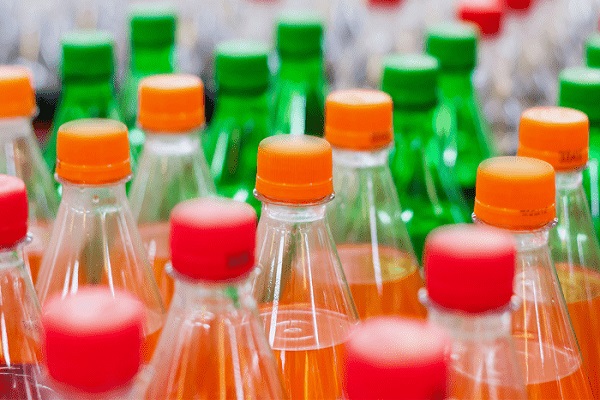

Tax on sugary drinks
EKO HOT BLOG reports that the Federal Government has been urged to increase the tax on sugary sweetened beverages (SSBs) from N10 per litre to N130.
The N10 per litre Excise Duty on SSBs was implemented in 2021 under the Finance Act.
Corporate Accountability and Public Participation Africa (CAPPA) has urged the government to include the increment in the 2024 Finance Act.
Despite the tax, which aims to deter the consumption of SSBs, CAPPA lamented that health concerns among the populace have not diminished, indicating that consumption remains unaffected.
During the public presentation of the simulation study on the “Potential Fiscal and Public Health Effects of SSB Tax in Nigeria,” Akinbode Oluwaterni, the Executive Director of CAPPA, emphasised that an increase in the tax would not only ensure the health security of Nigerians but also boost the government’s revenue for allocation to critical areas requiring attention.
According to the report, Nigeria ranks as the fourth highest SSB consumer in the world, with peak SSB consumption occurring among teenagers aged 15-19, with carbonated drinks being the primary product of choice.
Tax on sugary drinks
The findings outlined the vulnerability of youths to excessive sweetened beverage intake, necessitating policy interventions to decrease consumption.
Furthermore, the report noted that evidence from a recent systematic review and meta-analysis (Chukwuonye et al. 2022) shows that as of 2020, there were more than 21 million overweight and 12 million obese ‘persons in the Nigerian population aged 15 years or more, accounting for an age-adjusted prevalence of about 20per cent and 12per cent respectively (Adeloye et al. 2021).
In addition, a systematic review and meta-analysis by Uloko et al. (2018) shows that at least 11.2 million people live with diabetes in Nigeria.
Consequently, Oluwaterni justified the urgent need to raise the tax on SSBs, despite the current economic challenges in the country, saying, “You might wonder about this given the current circumstances.
“Yes! Even economics teaches us that during economic crisis, nations raise taxes on certain products that are considered not too critical. For SSBs, the issue here is Public Health and the real economic cost of overconsumption of SSBs.
“It is no longer news that the increase in NCD cases in Nigeria is alongside the increase in consumption of SSBs, alcohol, tobacco, trans-fat, unhealthy consumption of salt and other diets that are non-nutritive and injurious to the body.
“We also understand the current socio-economic struggles of the average Nigerian in an economy that is witnessing too many shocks at the same time.
“However, the burden of diseases in Nigeria also continues to impoverish the people as many spend the majority of their earnings on unhealthy diets, which leads to increased health costs, which further impoverishes the people.
“It is a cycle that needs to break. In a country with more than 80per centy of her population paying for healthcare out-of-pocket, we must find a policy pathway that will effectively remove obstacles to good health and national productivity like modifiable risk factors of consumption-related diseases and other NCDs”.
The Director of Public Health, Federal Ministry of Health and Social Welfare, Chukwuma Anyaike, while presenting the report, emphasized that while taxation is a valuable tool to deter SSB consumption, the Ministry’s primary focus is on promoting awareness about lifestyle and behavioral changes related to the consumption of sugary drinks.
Anyaike, however cautioned that Nigeria is edging closer to neighboring countries where non-communicable diseases are nearly surpassing communicable diseases, with SSBs playing a significant role in this trend.
He emphasized that while taxation serves as a deterrent to SSB consumption, primary prevention through education and awareness is of paramount importance.
He also affirmed that the Ministry remains vigilant in safeguarding the nation’s health.
The Nigerian Customs Service (NCS) stated that if and when the proposed new tax law is enacted, it will maintain its current role, consistent with its operations since the introduction of the existing tax in 2021.
Click to watch our video of the week
On Friday, the Economic and Financial Crimes Commission (EFCC) declared four individuals—Adefowora Olanipekun, Adefowora Oluwanisola,…
Week 43 Pool Fixtures For Saturday, Apr 19 2025– Latest Updates Week 43 Pool Fixtures…
Hon. Princess Surah Animashaun celebrates Hon. Tobun on his birthday. Describes him as “Messiah of…